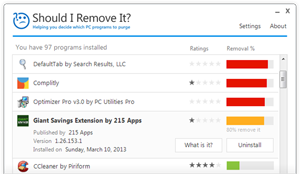Import table
advapi32.dll
SetSecurityDescriptorDacl, RegOpenKeyA, RegCreateKeyExA, RegSetValueExA, RegOpenKeyExA, RegQueryValueExA, RegCloseKey, InitializeSecurityDescriptor
kernel32.dll
CreateFileA, ReadFile, FlushFileBuffers, SetStdHandle, SetFilePointer, WriteFile, GetEnvironmentStringsW, GetEnvironmentStrings, FreeEnvironmentStringsW, FreeEnvironmentStringsA, GetModuleFileNameA, lstrcatA, lstrlenA, GetEnvironmentVariableA, GetDriveTypeA, Sleep, ReleaseSemaphore, MapViewOfFile, GetLastError, WaitForSingleObject, CloseHandle, CreateFileMappingA, CreateSemaphoreA, CreateThread, OpenFileMappingA, GetVersionExA, OpenSemaphoreA, GetCurrentProcessId, ResumeThread, SuspendThread, GetProcAddress, LoadLibraryA, GetStartupInfoA, GetFileType, SetEndOfFile, CompareStringA, CompareStringW, UnmapViewOfFile, GetTimeZoneInformation, GetStdHandle, SetHandleCount, HeapFree, HeapAlloc, GetCurrentThreadId, TlsSetValue, ExitThread, SetEnvironmentVariableA, GetSystemTime, GetLocalTime, InterlockedDecrement, InterlockedIncrement, WideCharToMultiByte, GetCommandLineA, GetVersion, EnterCriticalSection, LeaveCriticalSection, InitializeCriticalSection, GetCPInfo, GetACP, GetOEMCP, DeleteCriticalSection, ExitProcess, MultiByteToWideChar, LCMapStringA, LCMapStringW, GetStringTypeA, GetStringTypeW, HeapDestroy, HeapCreate, VirtualFree, VirtualAlloc, HeapReAlloc, TlsAlloc, TlsFree, SetLastError, TlsGetValue, TerminateProcess, GetCurrentProcess, UnhandledExceptionFilter, RtlUnwind
mpr.dll
WNetEnumResourceA, WNetOpenEnumA, WNetCloseEnum
ole32.dll
CoCreateGuid
user32.dll
wsprintfA
Export table
GenerateUniqueId
GetFirstLogicalDrive
GetLANDeskUniqueId
GetProcessorSerialNumber
GetUniqueId
GetVersionString
Guid2String
IsMyUniqueId
IsUniqueIdInConfigFile
IsUniqueIdInRegistry
PDSAddToExclusionList
PDSCancelScanForName
PDSCleanupDiscovery
PDSDeregisterAppFromDiscovery
PDSDeregisterCallback
PDSNetworkEnum
PDSNetworkEnumFree
PDSQuit
PDSRegisterAppForDiscovery
PDSRegisterAppForDiscoveryEh
PDSRegisterCallback
PDSRegisterCallbackEh
PDSScanForName
PDSScanForNameEh
PDSSendExclusionList
PDSSendExclusionPacket
PDSSendPing
PDSSendPingEh
PDSTxPacket
ResetUniqueId
String2Guid

